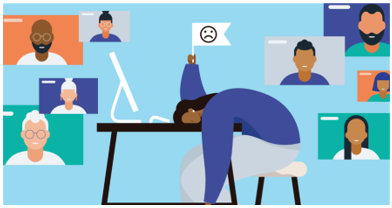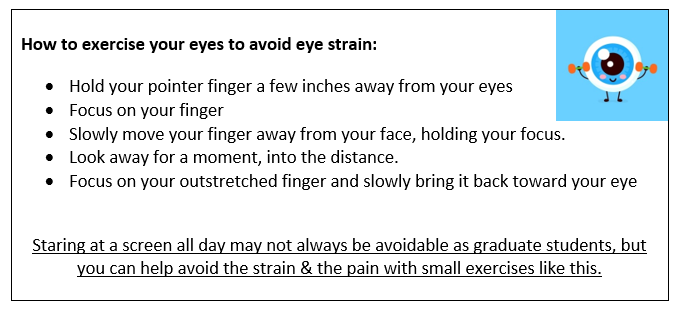Combatting Zoom Fatigue
Author:Nicolette Rigg

Is Zoom fatigue real? Navigating the coronavirus pandemic has undoubtedly created challenges, opportunities, and changes in our lives. One of those is the regular use of video conferencing technologies, such as Zoom. Overuse of these platforms can lead to so-called Zoom fatigue - a feeling of exhaustion after a bout of video conferencing sessions. However, the consequences of our new dependence on screens do not end at exhaustion. Engaging in intense eye contact on a small screen can cause worry, and being forced to look at ourselves constantly can contribute to struggles with self-esteem. There can also be negative physical effects due to a lack of movement, including muscle tension and pain. Plus, our brains are now having to work harder to decipher tone and facial expressions. Despite these new challenges, the expectation is often to be ‘on’ both physically and mentally all day while still having the energy left to complete an extensive list of to-do’s.
Below, we have compiled some tips on how to recognize Zoom fatigue and combat it!
Recognizing Zoom Fatigue
First, it is important to recognize whether you are experiencing Zoom fatigue! Science of People has compiled thislist of signs:
1. You leave a call feeling more tired than energized
2. You don’t get the same social ‘high’ that you feel when being around people in-person
3. Constant interruptions give you a feeling of lack of communication
4. Technical or internet problems leave you feeling angry
5. You feel confused or awkward during the meeting
6. You constantly think about work, even at home
7. You wonder why you engage in video calls in the first place
Combatting Zoom Fatigue
If you answered yes to any of the above criteria, here are some tactics that can help:
- Turn off your camera for the meeting or parts of the meeting
- Try to schedule breaks between Zoom calls
- Avoid screen time in the evenings
- Get some exercise and fresh air – even a walk around the block can help!
- Avoid eye strain by
- Adjust your schedule, if possible, to what suits you best for being “on”
- Create boundaries for meetings, such as no meetings during lunch hour
- Be honest and communicate your concerns to your Zoom-mates
- Use the “hide self-view” button to avoid looking at yourself throughout the meeting
- Try scheduling phone meetings instead of Zoom
The bottom line is that video conferencing fatigue is real, and it is probably here to stay for a while. No one wants their colleagues to experience burnout! However, we need to find ways to prevent it that work for us individually as not all solutions fit everyone. If your work burnout is contributing to more significant underlying issues, please talk to a health care professional. We study the brain, so take care of yours!
